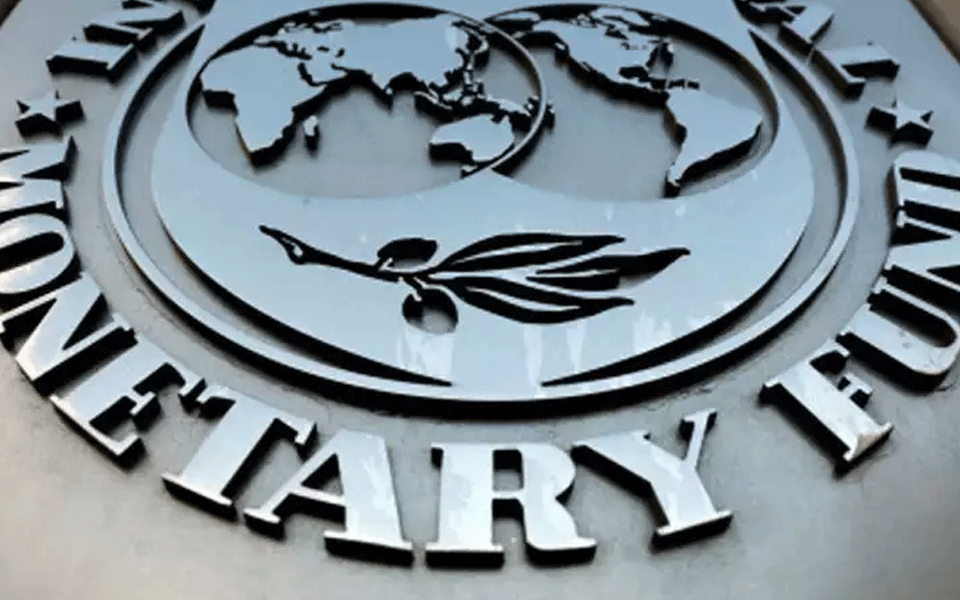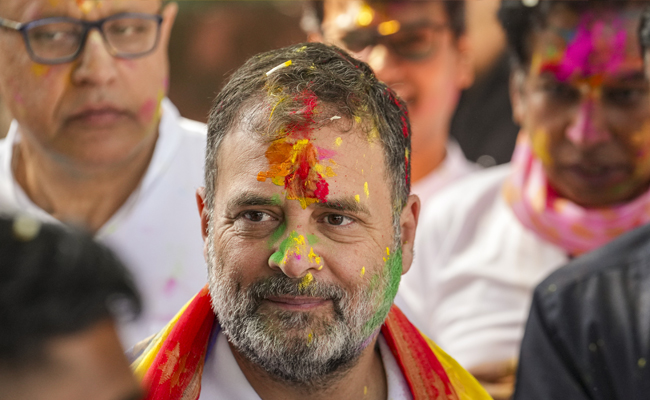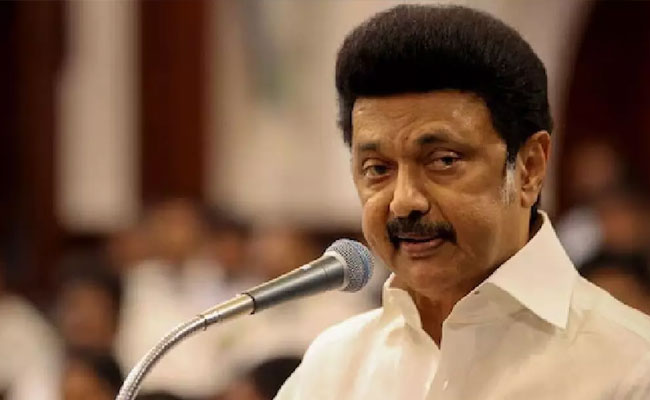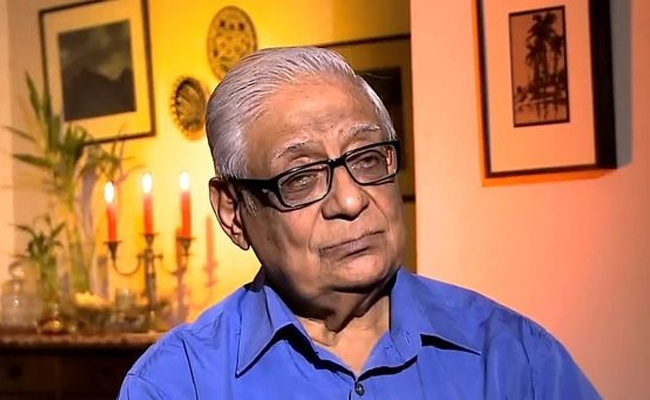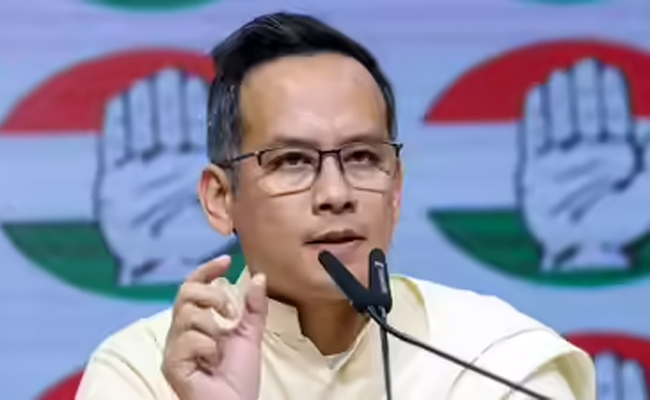Washington: India is now in the midst of a significant economic slowdown, the International Monetary Fund has said, urging the government to take urgent policy actions to address the current prolonged downturn.
In its report released Monday, the IMF Directors noted that India's rapid economic expansion in recent years has lifted millions of people out of poverty. However, in the first half of 2019, a combination of factors led to subdued economic growth in India.
"The issue in India currently is the growth slowdown. We still believe it is mostly cyclical, not structural... because of the financial sector issues, we think, the recovery will be not as quickly quick as we thought earlier. That's the main issue," Ranil Salgado, Mission Chief for India in the IMF Asia and Pacific Department told PTI in an interview as it released its annual staff report on India.
With risks to the outlook tilted to the downside, the IMF Directors called for continued sound macroeconomic management. They saw an opportunity with the strong mandate of the new government to reinvigorate the reform agenda to boost inclusive and sustainable growth, the report said. The staff report was done in August when the IMF was not fully aware of India's current economic slowdown.
"India is now in the midst of a significant economic slowdown," Salgado told reporters over phone.
Growth in the second quarter of FY 2019/20 came in at a six-year low of 4.5 per cent (y/y), and the composition of growth indicates that private domestic demand expanded by only 1 per cent in the quarter. Most high-frequency indicators suggest that weak economic activity has continued into December, he said.
Salgado attributed this to the abrupt reduction in non-bank financial companies' (NBFC) credit expansion and the associated broad-based tightening of credit conditions appears to be an important factor and weak income growth, especially rural, has been affecting private consumption.
Private investment has been hindered by the financial sector difficulties (including in the public sector banks (PSBs)) and insufficient business confidence, he said. Some implementation issues with important and appropriate structural reforms, such as the nation-wide goods and services tax (GST), may also have played a role, he added.
Responding to a question, Salgado said that the new growth projections for India, which will come out in January, would be significantly lower than the previous ones.
"By other measures, India still is doing well. Reserves have risen to record level. The current account deficit has narrowed. Inflation, although we have a little jump right now because of vegetable prices, we think (it) has been under control for the last few years. So, by other measures, India is doing quite well. The issue is primarily how to address the growth slowdown," Salgado said.
Responding to a question, he said that the IMF has been surprised on India's slowdown. But he responded in negative if this slowdown can be described as an economic crisis.
"I think that would be going too far to say that. What we have seen is a growth slowdown. It may be longer than we had originally anticipated. But other elements like on the external side, on inflation, those are under controlled," he told PTI.
In the short term, he said, the most critical thing is carrying out reforms in the financial sector.
"We have, what we used to call a twin balance sheet problem being in the commercial banks and corporate sector. Now we may add additional balance sheet issue, which is on the NDFs. I'm including housing finance companies in that sector that as well.
"So the most immediate thing would be to try to have some policies related to restoring the health of this sector," he said.
Some steps have already been meaning the improvements that should be soon in place in terms of regulation of the sector, there is more information related to the sector; the steps to have a process to its resolution by including them, at least initially in the IBC process.
"On that though, we think a more comprehensive financial sector resolution plan or act as needed. There were earlier thoughts in this area by the government and we think those should be pursued again, because there are certain complications related to financial sector that don't necessarily work well in a simple kind of insolvency and bankruptcy code. It would be important to have a more comprehensive framework specifically for financial sector," the IMF official said.
Observing that early in the term is the time to push for structural reform, he said the current government in its first term carried out majority of its reforms early in the term.
"It is also true globally that it is easier to pursue structural reforms in the first half of the term," Salgado said.
From the IMF perspective, these areas are labour, land, different product market reform, continuing to enhance competition and also pursuing some of the more medium to long term reforms such as in education and health, he said.
Noting that the IMF believes that India has fiscal base at-risk, Salgado said that as a result New Delhi's ability to use a fiscal policy for stimulus is very limited.
"India already has a relatively high general government deficits and general government debt," he added.
Let the Truth be known. If you read VB and like VB, please be a VB Supporter and Help us deliver the Truth to one and all.
New Delhi (PTI): Congress leader Rahul Gandhi celebrated Holi with party workers at the AICC's 24, Akbar Road office here on Wednesday, as he was smeared with colours by supporters and leaders.
Gandhi wished everyone a Holi filled with love and one that eliminates hatred.
Surrounded by workers, leaders and journalists at the party office, Gandhi applied colours on everyone and was smeared by 'gulal' in return.
Sharing pictures from the celebration on X, Gandhi said in a post in Hindi, "Heartiest greetings to all of you on the festival of colours and love, Holi. May the colours of Holi fill your lives with new hopes, new enthusiasm and countless happiness."
Earlier, Congress president Mallikarjun Kharge greeted people on Holi.
"Holi is a festival that expresses the soul of our colorful, multicultural society. It celebrates the tradition of unity in diversity, mutual harmony, and brotherhood that has been the hallmark of our civilization for centuries," Kharge said in a post in Hindi on X.
"On this joyous occasion that bridges distances, I wish you all a very Happy Holi. May your life always be filled with the colors of happiness," Kharge said.
Congress general secretary Priyanka Gandhi Vadra also greeted people on Holi.
"Heartiest greetings for Holi, the grand festival of togetherness, filled with the diverse colors of joy, enthusiasm, happiness, sweetness, and brotherhood," she said in a post in Hindi on X.
"Holi is a grand festival of lovingly embracing your family, friends and everyone else. Embrace everyone and share happiness with everyone. Happy Holi to all the people of the country!" she said.
रंगों और मोहब्बत के पर्व होली की आप सभी को हार्दिक शुभकामनाएं।
— Rahul Gandhi (@RahulGandhi) March 4, 2026
होली के रंग आप सभी के जीवन को नई आशाओं, नए उमंग और अनगिनत खुशियों से भर दे। pic.twitter.com/sp10UNSl7v

